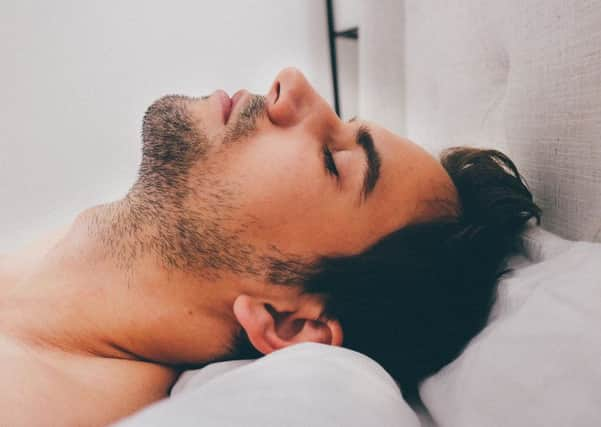The science of snoozing - is it bad to hit '˜snooze' in the morning?


The snooze button can be your best friend. When you’re not quite ready to leave the warmth of your bed or accept the fact that your peaceful slumber is over, hitting that button can seem like a much needed reprieve.
But according to sleep guru Michael Breus, Ph.D, using the snooze function disrupts your body clock.
Advertisement
Hide AdAdvertisement
Hide AdOnce you retreat back to sleep, the bodies natural daily rhythms are thrown off making it unsure when to wake up and wind down.
Furthermore those extra winks can upset your REM sleep. The REM stage of sleeping is vital in keeping you mentally focused the next day and occurs just before you wake up.
When your alarm pulls you out of REM, the body believes it’s time to get up. Therefore, if you hit snooze and go back to sleep, you’re sending the body into a brand new phase of it and tricking it into thinking you don’t need to get up after all.
The second time your brain falls into REM, it remains that way long after you’ve finally gotten up, resulting in the feeling of fogginess and, in some cases, unproductivity.
The groggy, fuzzy-headed feeling you get post-snooze is called sleep inertia and research suggests that sleep inertia can last for up to two hours, which is why the first few hours of the day can sometimes be the hardest.
What should I do instead?
Dr Irshaad Ebrahim FRCPsych of Edinburgh’s Sleep Centre explains: “It’s not healthy to snooze in the morning - anyone who has had a full quota of sleep the night before should not be sleepy in the morning.
“If you feel the need to snooze in the morning, you should be assessed by a sleep doctor.”
Breaking the habit of pressing snooze can dramatically impact your day.
Advertisement
Hide AdAdvertisement
Hide AdThe best way the stop yourself drifting in and out of sleep every morning is to set your alarm for the time you normally stop snoozing - giving you no choice but to wake up.
Getting up at the same time everyday will give your body clock consistency and help you to feel naturally tired by the end of the day. This means you will go to sleep and wake up when it feels right for your body.